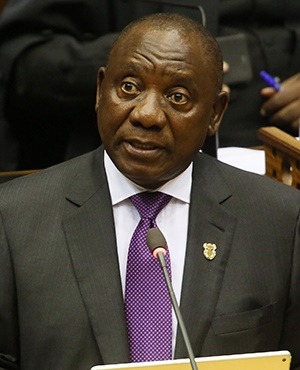President Cyril Ramaphosa’s State of the Nation Address indicated a better life for all; an end to corruption, renewed hope in a rainbow nation, equality for all who live in South Africa. But is this feasible and what will dashed hopes mean for South Africa?
I was running through my neighbourhood recently and had the misfortune of going past an altercation between a large white man in a big expensive car and one of those men who sort out recycling (a trolley man), who could not have been more than 25. The trolley man had partially blocked the white man’s driveway.
The white man was clearly furious and started gesticulating, then shouted profanities at the trolley man, while the gardener from next door looked on.
It was sickening. The trolley man just stood and took this abuse. Call it coincidence that when I started running back to intervene, the gate opened and the white man drove inside.
Rather, I like to think that he was afraid of being confronted by a smallish, well-educated white woman in her running clothes and so scampered (if you can scamper in a big car) inside.
The thing that disturbed and saddened me the most about the incident was that as I was running back and calling this white man an arsehole for his disrespect for the trolley man, the gardener asked me whether I was calling the trolley man or the white man an arsehole.
In a country where disrespect for the poor, the marginalised and the disenfranchised is so commonplace, it would not be a surprise for an additional attack on this man whose only “sin” was not moving his trolley fast enough. And this is 24 years into our democracy. Twenty-four years after the end of apartheid and poor people – often synonymous with black people – in this country continue to be shamed and humiliated on a daily basis.
It is argued in The Smoke that Calls, a seminal paper on collective violence in South Africa, that lack of access to economic expression, combined with poverty, inequality and no prospect of change leads to what is expressed as a “half-life”.
Take this half-life and add on the shame, guilt and humiliation that poor people are confronted with daily. When economic access is elusive and hope for change is diminished, violence is used to air frustrations and to provide a space to express power that is elusive for the rest of the time.
Collective violence provides a space with which young people, especially young men, are able to fight on behalf of the communities, thus regaining their sense of self.
Societal expectations on young men to provide for their families places a lot of pressure on these men. The shame and guilt for not being able to provide for themselves and their families continues to undermine their masculinity, fuelling a sense of frustration and anger.
Our work at the Centre for the Study of Violence and Reconciliation has shown that the shame, guilt and hopelessness that is inherent in poverty, inequality and socioeconomic exclusion is likely to lead to an increase in interpersonal and collective violence. Constantly undermining a person’s sense of self and the hope for a better future adds fuel to the flames.
South Africa’s transition into democracy promised a better life for all. However, 24 years later, these promises have been only partially fulfilled. Many South African citizens still await adequate housing, water and infrastructure.
Unless something drastic is done, there is a likelihood of further insurgencies in which people feel they need to fight to claim their space in South Africa and to provide for their families.
Ramaphosa renewed hope that things will get better; that the social ills of the past could be transformed. However, we have seen that misplaced hope leads to more frustration.
Words are not enough; promises need to be fulfilled.
We now stand on the brink.
The role of Ramaphosa and his newly elected Cabinet is key to realising the dreams for the people of South Africa and fulfilling the promises of a country that respects all its citizens and ensures a better place for all.
Let us learn from the past 24 years of our democracy. Do not make promises and dash them. Do not continue with unfulfilled dreams.
We call on you, President Ramaphosa, your Cabinet and all leadership in this country to guarantee dignity, equality and respect for all.
We call on you to place special attention into reconciliatory and peace-building processes to ensure all people have economic, political and social access.
Ensure that the dreams of a better life for all are realised.
- Dix-Peek is the knowledge and learning manager for the Centre for the Study of Violence and Reconciliation



























